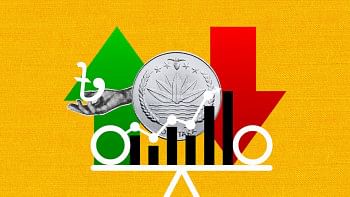Civil society as the key to development
Today, the United Nations observes the International Day of Democracy. This year highlights the role of civil society and the importance of ensuring its ability to operate and thrive. Civil society is loosely defined as a collection of organisations and citizens promoting a plurality of views and interests for the enrichment of society. It plays an integral role in democracies, and helps democratic countries to enjoy justice, equity, representation, and freedoms of expression and association, amongst many others. These values are enshrined in The International Covenant on Civil and Political Rights, which highlights the way in which civic and political freedoms are not just granted or upheld by a country, but are the responsibility of each citizen.
Civil society organisations are an expression of the democratic values and freedoms inherent in their identity. These organisations don't represent a single, monolithic entity, but rather the sum of many voices, at times discordant, and at times coming together on common issues that may advocate for change across ethnic, linguistic, religious and even political lines. Civil society functions as a marketplace of public ideas, a forum for exchange, dialogue, and reform that can become a source of creativity and solutions to a diversity of challenges.
The nature of civil society is such that it often challenges the status quo, which may in turn lead to more open and inclusive communities. Not only does this require tolerance of different ideas and perspectives, but also calls for the existence of an openness for meaningful and constructive dialogue and debate in the society. Without this openness of ideas, there is a risk of social disenfranchisement which can manifest itself violently, destabilising the environment for economic development to progress. There is no standard template for creating the conditions for civil society, although there is one essential ingredient: civil society grows in places where the state does not impose restrictive legislation but, on the contrary, encourages and enhances civic participation.
A strong civil society is simultaneously a precondition and outcome of a functioning and stable democracy. The United Nations recognises that development and democracy function best when civil society is permitted to flourish unhindered. Currently at the UN Secretariat, there are over 4,000 represented civil society and non-government organisations giving voice to ideas, and contributing research on the different issues discussed on the global agenda. For instance, in forming the set of development goals for the next 15 years - the Sustainable Development Goals (SDGs) - civil society was not only active in the consultative process which gave birth to the SDGs, it will also be a valued partner for their implementation. While civil society is independent from government and can often assume the role of critic, at times in tension with the state, it is also the government's partner to collectively support better decisions and hold it accountable, which benefits all of the population.
This important link between civil society, democracy, and development, is actually best demonstrated right here in Bangladesh. Bangladesh has acquired a world reputation for its vibrant and robust civil society. It can trace its roots to the Language Movement, a coalition of students, activists, and groups that would eventually form the political architecture of what would become an independent Bangladesh. It was a true demonstration of the will of the people and the precursor to change and a self-determined democracy. Civil society continued to evolve after independence, with Bangladesh becoming the birthplace of micro-finance and the home of the biggest non-government organisation in the world.
Today, Bangladesh's civil society spans the world, sharing indigenous expertise and experience, and has evolved to over 2,000 national civil society and non-government organisations in the country and even more community-based groups, working together towards a better society for all. When diversity and plurality of voices mobilise in a free and open democracy, civil society is a government's best ally to achieve common development aspirations. As Bangladesh enters middle-income status, it is fitting to recall the best of the country's traditions. At a time when civil society in Bangladesh is concerned about the shrinking space for public engagement in the country, we must be vigilant in ensuring that the proper conditions for a healthy exchange of views and ideas are continually upheld and nurtured.
The writer is the United Nations Resident Coordinator in Bangladesh.

 For all latest news, follow The Daily Star's Google News channel.
For all latest news, follow The Daily Star's Google News channel. 



Comments